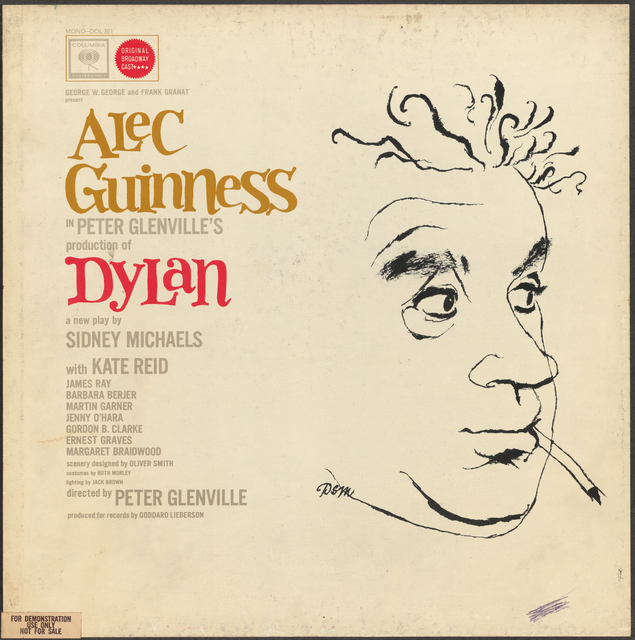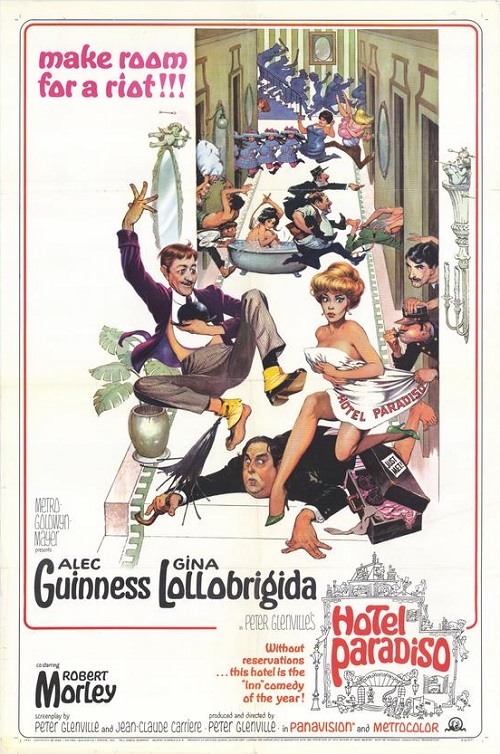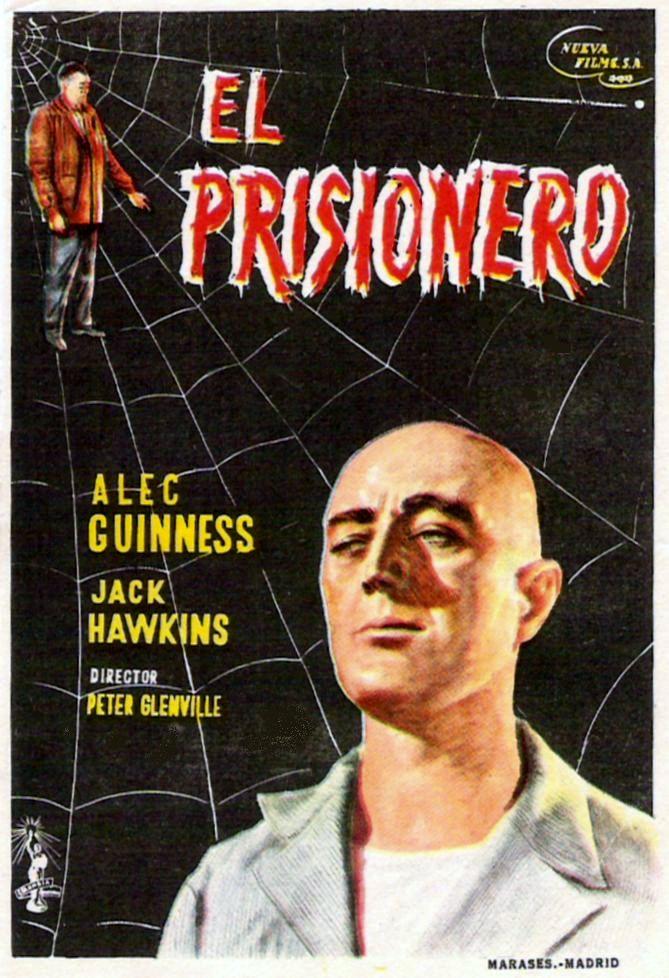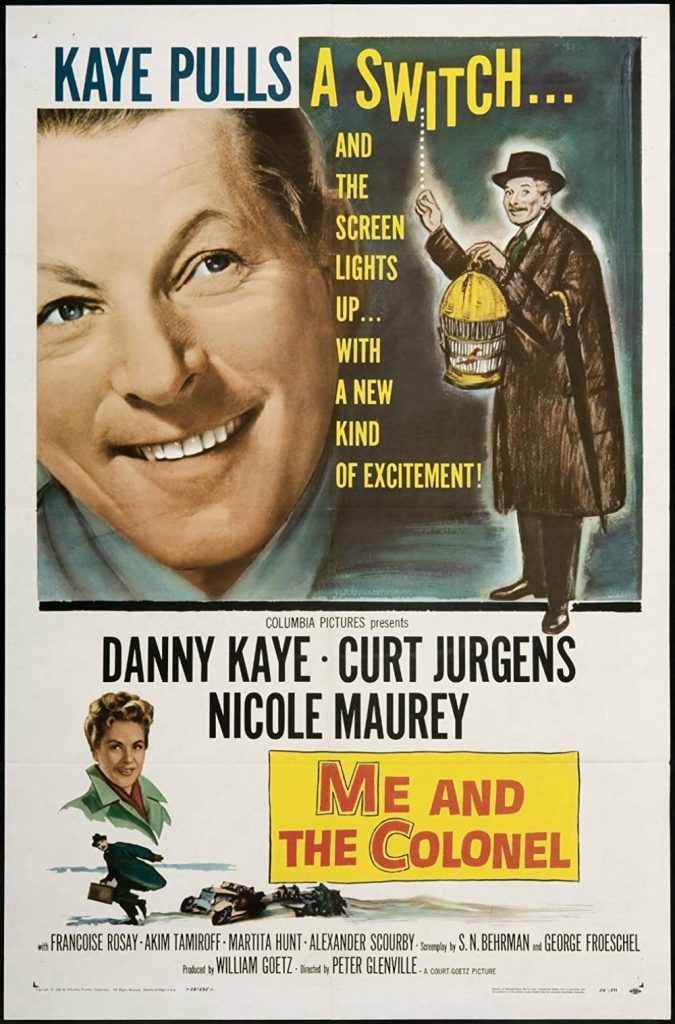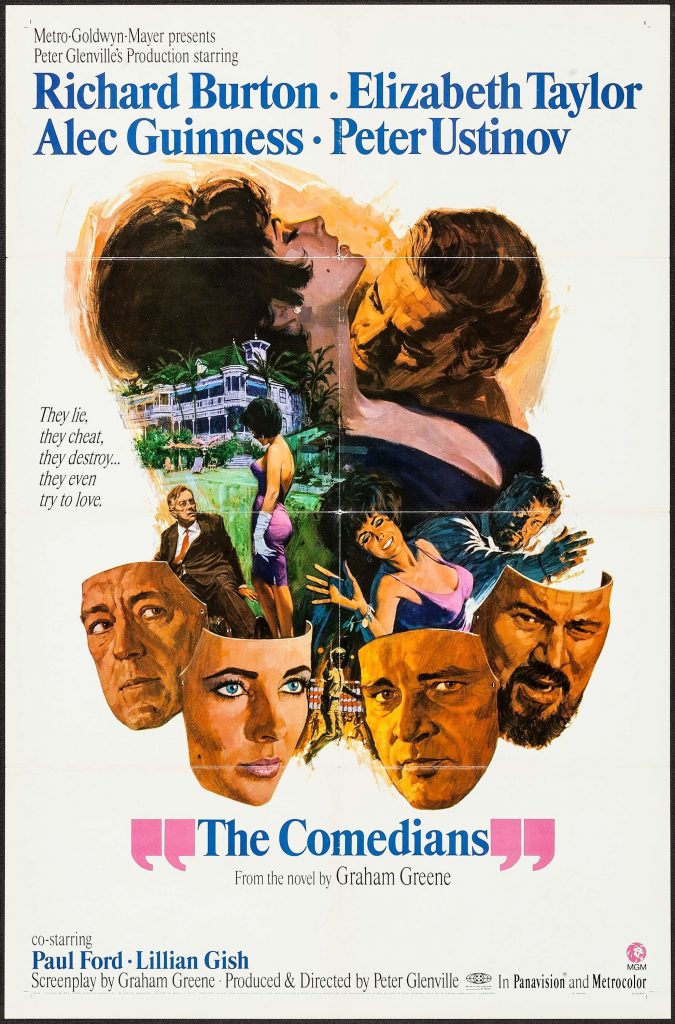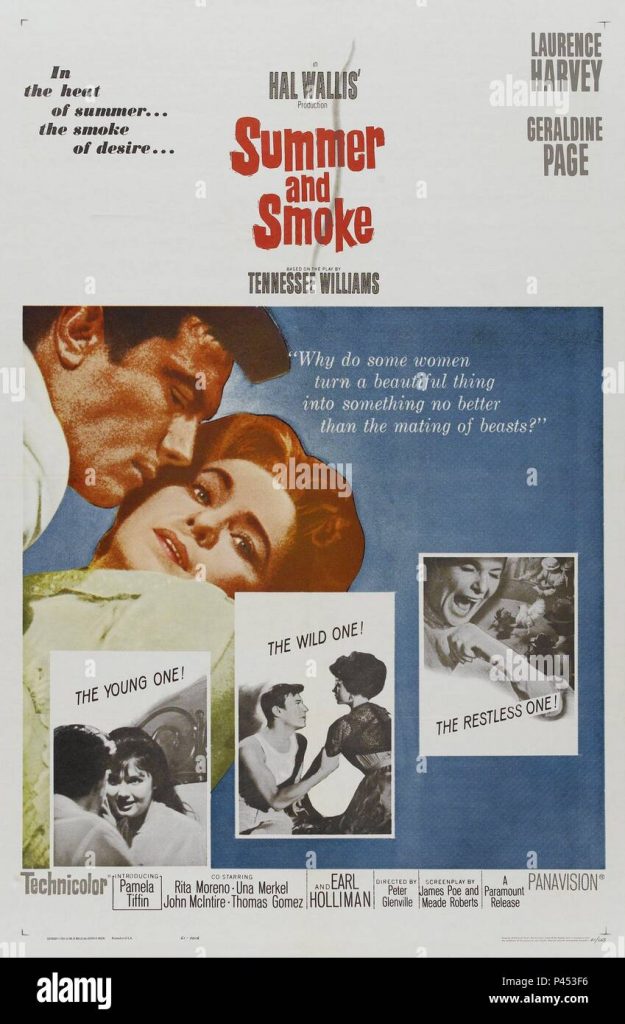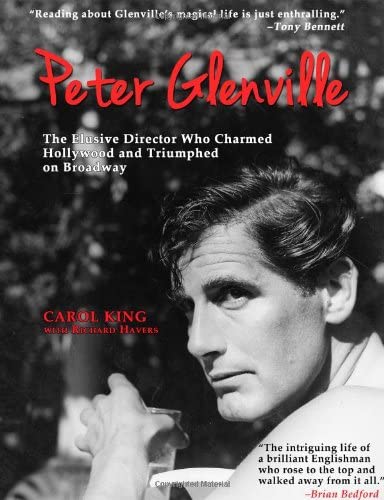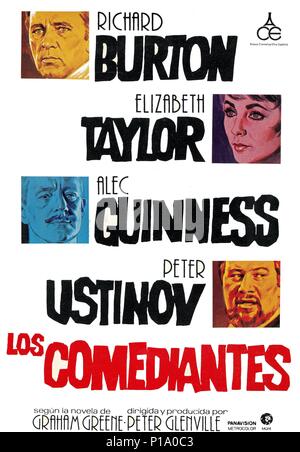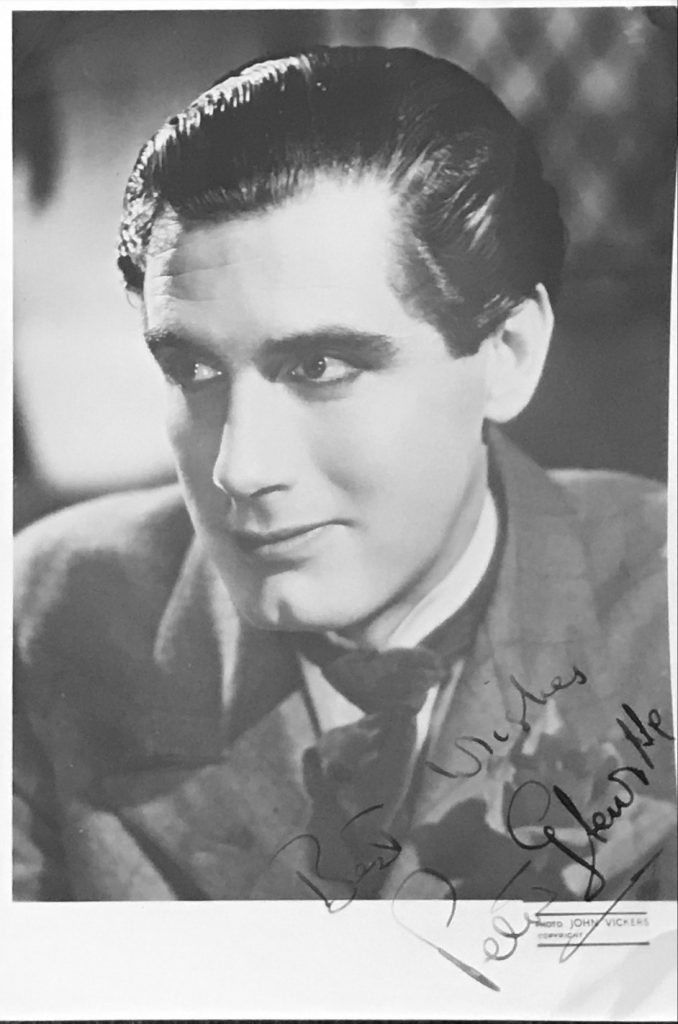
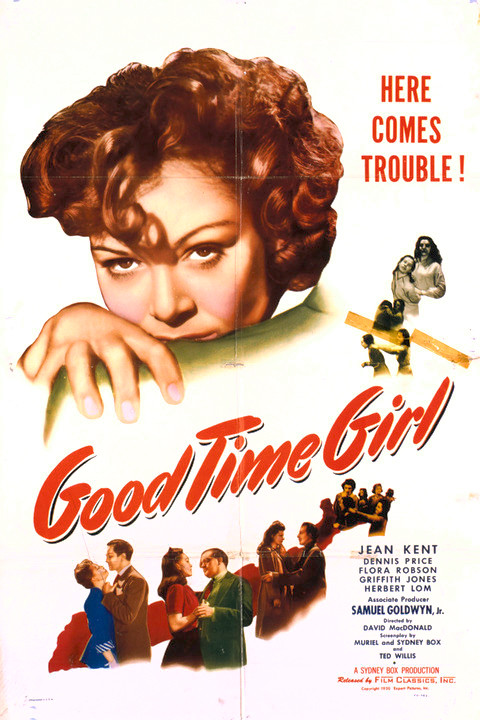
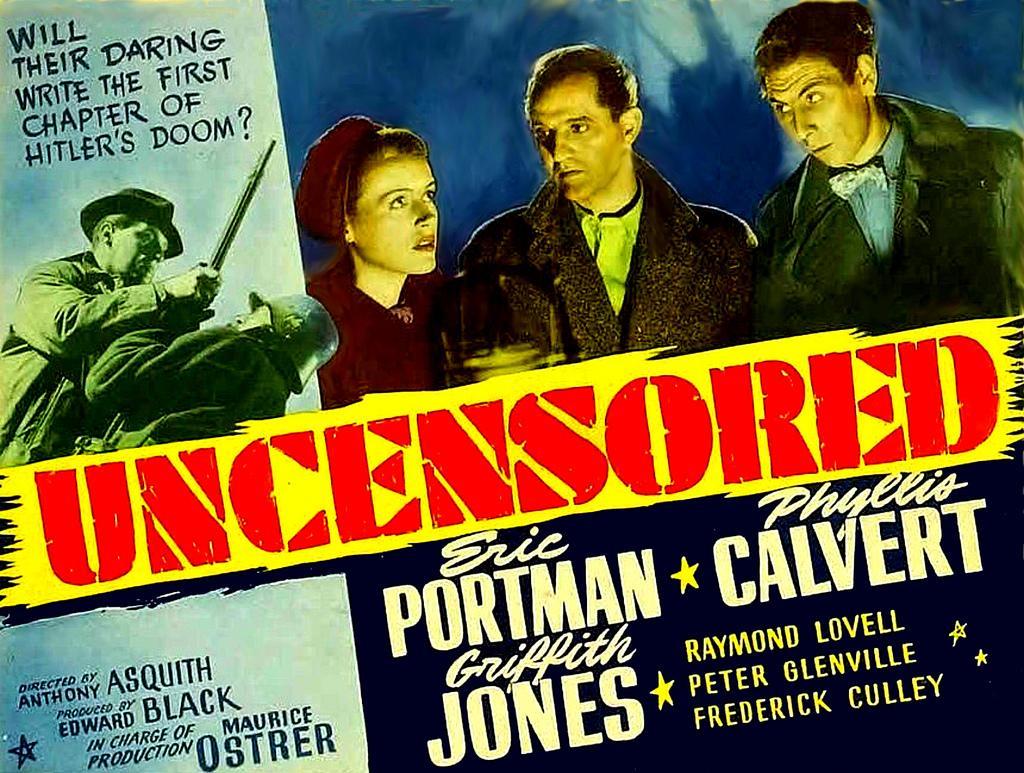
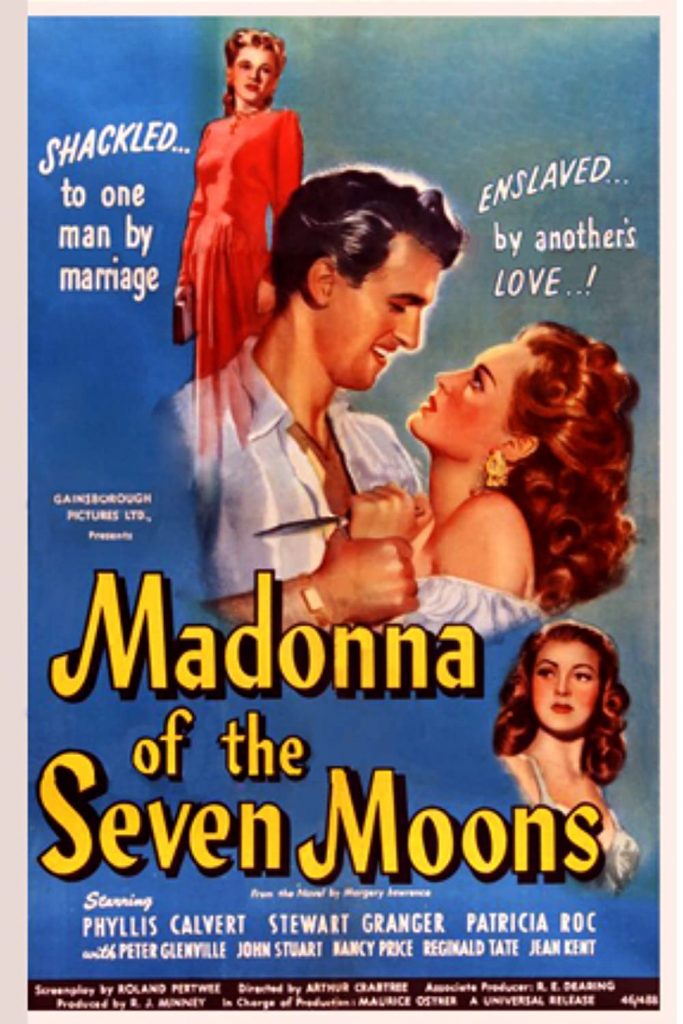
Peter Grenville obituary in “The Guardian” in 1996.
Peter Glenville was born in 1913 in London. His father was the Irish actor Shaun Glenville. He was both an actor and director. On film he acted in “His Brother’s Keeper” in 1940, “Madonna of the Seven Moons” in 1945 and “Good-Time Girl” with Jean Kent, Diana Dors and Flora Robson. As a directed, he directed “The Prisoner”, “Me and the Colonel”, “Summer and Smoke”, “Term of Trial”, “Becket”, “Hotel Paradiso” and “The Comedians”. He died in 1996.
“Independent” obituary by Derek Granger:With his dark, Celtic matinee-idol looks, Peter Glenville was a glittering figure in the post-war London theatre. He had made promising beginnings as a young actor in the Thirties and Forties, but achieved his greatest success as a director of West End plays for the management of H.M. Tennent. Under Binkie Beaumont, the head of that prolific firm, Glenville became one of a select team of young directors who could be relied on to give a Tennent production the immaculate standards prized by Beaumont – starry casting, high visual impact and a veneer of conspicuously polished taste. A natural flair, gave the authentic Tennent stamp to a large number of important London productions. Among them were five plays by his friend Terence Rattigan, including The Browning Version and Harlequinade (both 1948), Adventure Story (1949) – Rattigan’s extravagant reworking of the life of Alexander the Great starring Paul Scofield – and Separate Tables (1954), with a cast led by Margaret Leighton and Eric Portman.
In 1948, he directed John Gielgud in a revival of St John Hankin’s witty Edwardian morality play The Return of the Prodigal, with sets by Cecil Beaton, and in 1951 a delicately judged presentation of Tennessee Williams’s Summer and Smoke with Margaret Johnson as the wistfully ill-adjusted Southern heroine. A broodingly thoughtful study of domestic decay and lost faith provided the theme for Graham Greene’s The Living Room (1953), with a cast headed by Eric Portman and the 23-year-old Dorothy Tutin.
He directed Alec Guinness (who was to become a lifelong friend) in Sam and Bella Spewack’s 1951 version of Karel Capek’s Insect Play, entitled Under the Sycamore Tree; the production was designed by another friend, Oliver Messel. Guinness had also appeared for Glenville in 1950 in The Prisoner by Bridget Boland, playing the Cardinal tortured for his faith in a Communist state. In 1952, Glenville directed an adaptation from Henry James’s The Reverberator, Letter From Paris, again with decor by Messel.
From 1949, Glenville frequently directed plays in New York. Among them were another Henry James adaptation, The Innocents (from The Turn of the Screw); The Island of Goats; Romeo and Juliet, with Olivia de Havilland; and his own adaptation of the Feydeau farce Hotel Paradiso, starring Angela Lansbury and Bert Lahr, which he co-presented in 1957 and later produced in London.
His greatest Broadway success was Jean Anouilh’s Becket, which he directed in 1960 with an outstanding cast in which Anthony Quinn played the mercurial and exasperated Henry II and Laurence Olivier his troublesome prelate. Olivier was later to change roles and play the King. Becket was filmed by Glenville four years later with Richard Burton as Becket and Peter O’Toole as Henry II.
The choice of Glenville’s theatre work was eclectic, reflecting his own enquiring taste and his well-articulated belief that a good director should be a true interpreter of the playwright, intuitive and delicate when the nature of the work required an unobtrusive approach, but ready to use all the broad and colourful strokes of theatrical magic if the material so demanded.
Peter Glenville was the son of the Irish comedian Shaun Glenville and the musical star Dorothy Ward, the tall, beautiful, thigh-slapping Principal Boy of innumerable pantomimes, who often appeared with her husband playing the Dame. Glenville liked to boast that he came from a line of Irish vaudevillians (his grandmother, Mary Glenville, was a frequent player at the Abbey Theatre, Dublin), but the older Glenvilles were actually a prodigiously successful theatrical couple and it was Glenville’s luck that their success gave him financial independence, a fact which did nothing to quench either his application or ambition.
Educated by Jesuits at Stonyhurst College (he retained his strong Catholic faith throughout his life), he went on to study Law at Christ Church, Oxford, where he became President of Oxford University Dramatic Society. His many roles for them included Puck in A Midsummer Night’s Dream directed by Max Reinhardt.
It seemed inevitable that Glenville would swiftly become a major young actor. Between 1934 and 1947 he played professionally a succession of leading roles – classical, romantic and invariably showy – ranging from Tony Pirelli in Edgar Wallace’s gangster drama On the Spot and Stephen Cass in Mary Hayley Bell’s horror thriller Duet For Two Hands to Romeo, Prince Hal and an intense Hamlet in a production which he also directed for the Old Vic company in Liverpool, where in 1946 he had been appointed a director. Here, at the age of 34, his experience confirmed that he had probably reached his limits as an actor and that his future career lay in direction.
After the mid-Fifties, Glenville lived and worked chiefly in New York. The varied productions he directed there included the Japanese Samurai revenge drama Rashomon, the French comedy Tchin-Tchin, a musical version of Tovarich starring Vivien Leigh, John Osborne’s A Patriot For Me and Dylan, a study of the last days of Dylan Thomas, with Alec Guinness as the disintegrating poet.
In 1970, he returned to London to direct his last play there, Rattigan’s Bequest to the Nation, about Emma Hamilton. His last production in New York was the ill-fated two-hander Out Cry (1973) by Tennessee Williams.
Glenville directed several films but his touch was never as sure as for his work for the stage, and even with stars like Laurence Olivier and Simone Signoret (in Term of Trial, 1962) and Elizabeth Taylor and Richard Burton (in Graham Greene’s The Comedians, 1967) his films leave one with a sense of expectations unfulfilled.
Glenville retained into old age his youthful appearance and zest; he had a seductively engaging manner, an air of brilliance and worldly assurance, lightened by an infectious sense of mischief and irony, when stories and gossip would tumble forth in gleeful, swooping bursts of emphasis.
He had always lived in style, first as a young man in his thirties in a fine house, complete with butler, in Brompton Square, and afterwards for more than three decades in New York in a vast, grand apartment in the town house he owned in the East Sixties, decorated in sombrely impressive style by Geoffrey Bennison.
Within this somewhat Proustian context Glenville was eagerly embraced by New York society and it came to seem that no gossip column or social event was complete without him. Recently he had created a second delectable haven, a house in the picturesque Mexican town of San Miguel. In the last two decades, although he had given up directing, the grand, the smart and the beautiful still flocked to his East Side drawing-room where it probably seemed to him that the human comedy provided almost as much stimulation as the theatre.
Peter Glenville, theatre and film director: born London 28 October 1913; died New York 3 June 1996
The above “Independent” obituary can also be accessed online here.
